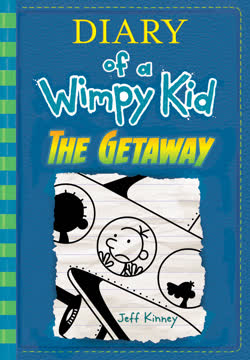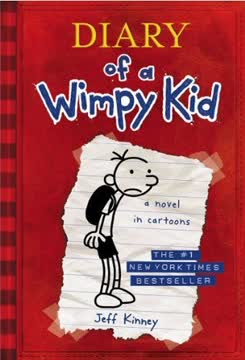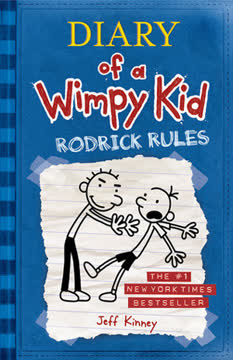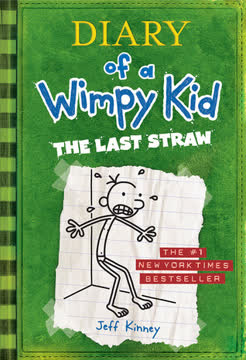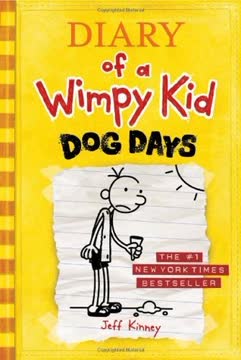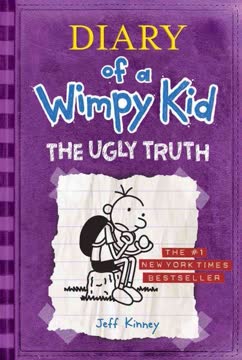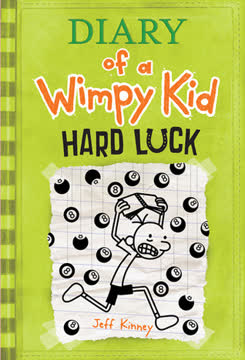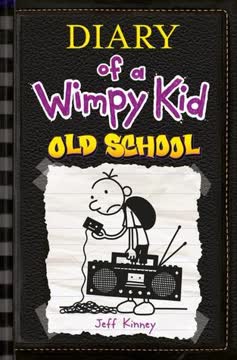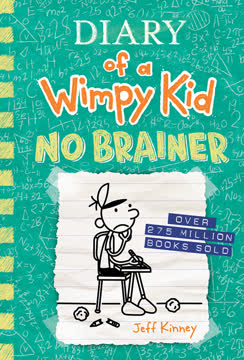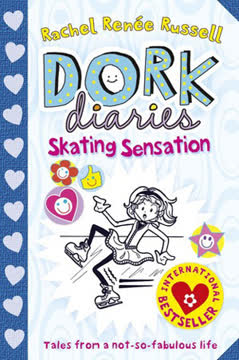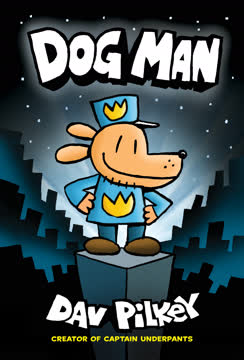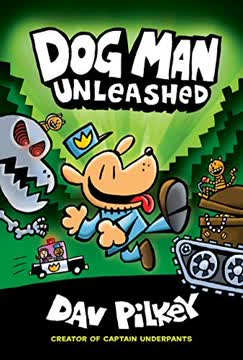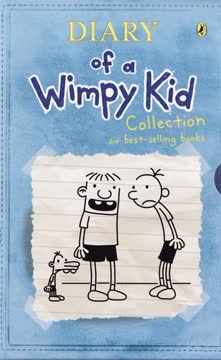Plot Summary
Holiday Plans Upended
The Heffley family's December is thrown into chaos when a TV ad inspires Greg's parents to skip Christmas at home and instead take the family to Isla de Corales, a tropical resort where they honeymooned. Greg, dreading the loss of his traditional holiday and anxious about his first flight, finds no support from his brothers, Rodrick and Manny. Despite his protests, the family packs up for a vacation that Greg suspects will be anything but relaxing.
Airport Chaos Unleashed
On Christmas Eve, the Heffleys' journey to the airport is plagued by traffic, snow, and logistical nightmares. Parking far from the terminal, Greg and his dad trudge through slush, miss the shuttle, and nearly get into a fight with another driver. Inside, they face long lines, a suitcase overweight debacle, and a security line meltdown caused by unruly kids. After a series of delays and near-misses, they finally board their flight, already exhausted and frazzled.
Turbulent Skies, Awkward Seats
The family's first flight is a comedy of errors: Greg is stuck between a couple with a baby, endures a nerve-wracking safety video, and is denied first-class perks. The baby's antics, lack of food, and cramped conditions make the flight miserable. Turbulence, bathroom misadventures, and Greg's overactive imagination about disasters add to the ordeal, leaving everyone relieved just to land.
Arrival in "Paradise"
The Heffleys arrive at Isla de Corales, greeted by heat, crowds, and a confusing "Wild Side" (adults only) and "Mild Side" (families) division. Their suite is spacious, but a luggage mix-up means they lack essentials. The resort's all-inclusive promise is undercut by overpriced stores and crowded amenities. Greg's hopes for relaxation are quickly dashed by the reality of family travel.
Resort Realities Set In
The family's attempts to enjoy the resort are thwarted by crowds, wildlife, and mishaps. The pool is overrun, the hot tub is unappealing, and the "Director of Fun" ropes Greg into embarrassing activities. A "Treasure Dive" devolves into chaos and cheating. Wildlife, including iguanas and slugs, invade their meals, and Dad falls ill from drinking the local water, confirming Mom's warnings.
Poolside Pandemonium
Greg's attempts to relax are interrupted by aggressive birds, lizards, and a failed lunch. Dad's stomach issues worsen, and the family's suite is invaded by moths. Nighttime brings little rest, with noise from the Wild Side and a sense that the vacation is spiraling out of control. Greg's longing for home grows as the family's patience wears thin.
Wildlife Encounters and Mishaps
Greg's open-air shower is interrupted by a giant spider, triggering a frantic and comedic battle involving room service. Manny collects live creatures from the beach, infesting their cabana. The family's attempts to enjoy the beach are marred by crowds, sunburn, and more animal run-ins. The line between adventure and ordeal blurs as the Heffleys struggle to adapt.
Family Friction and Fiascos
Mom's insistence on self-sufficiency (doing laundry, cleaning) clashes with Greg's desire for hotel pampering. Rodrick pursues a teen romance, while Greg resists being forced into "tween" activities. Dad's ongoing spider trauma and Manny's animal hoarding add to the chaos. The family's attempts at togetherness are repeatedly undermined by mishaps and misunderstandings.
Activities Gone Awry
The family's efforts to participate in resort activities backfire. The banana boat ride ends with a puncture and a failed Christmas card photo. Attempts to eat indoors are stymied by strict dress codes, leading to more frustration. Even the swim-up bar is overrun by a displaced monkey and TV remote drama. Greg's arcade escape is short-lived as he's drawn back into family obligations.
The Great Banana Boat Bust
The much-anticipated banana boat ride, meant to be a highlight and a photo op, ends in disaster when the boys are thrown off and the boat is punctured by another kid. The resulting photo is anything but Christmas-card worthy, and the family's spirits sink further as their plans unravel.
Dining Disasters and Dress Codes
Denied entry to the only indoor restaurant due to lack of proper attire, the Heffleys "borrow" clothes from a stranger's suitcase. Their brief moment of triumph at the golf clubhouse is cut short when they're reported for theft, leading to a humiliating confrontation with security and their expulsion from the resort.
The Infamous Jellyfish Incident
Manny's fascination with collecting creatures leads him to bring a box jellyfish into the pool, triggering a mass evacuation and the draining of the entire pool. Greg becomes the scapegoat among the resort kids, and the family's reputation is in tatters. The incident cements their status as the resort's most notorious guests.
Social Survival and Blame
Ostracized by other kids, Greg is trapped in a tennis court "activity" and must escape over the fence. The family, now pariahs, debates cutting the trip short. Dad insists on one good meal before leaving, setting up the ill-fated clothes caper. The Heffleys' attempts to salvage their vacation only deepen their troubles.
The Clothes Caper
The family's plan to dine in style backfires when they're caught wearing another family's clothes. Security forces them to return the outfits and pack up, ending their stay in disgrace. The Heffleys spend a miserable night in an airport hotel, reflecting on their string of misfortunes.
Security Showdown and Expulsion
With no flights home, the Heffleys are stuck. Mom and Dad decide to sneak back into the resort for a "do-over" and a proper family photo. Their covert return is fraught with tension, but they manage to blend in long enough for one last attempt at fun.
The Do-Over Attempt
The family's clandestine return to the resort is focused on capturing the perfect Christmas card photo. Despite obstacles, they briefly recapture the spirit of vacation, sharing food scavenged from other guests and enjoying the beach. But their luck runs out as they're recognized and pursued by security once more.
Wild Side Escapade
Fleeing security, Greg accidentally windsurfs into the dolphin enclosure and stumbles onto the adults-only Wild Side. Chased by guards and sunbathers, he reunites with his family at the dividing wall. A final spider scare and a collapsing wall provide the perfect chaotic climax, allowing the Heffleys to escape in the confusion.
Home Again, Never the Same
The Heffleys return home, exhausted and infamous. Mom assembles a photo album that glosses over the disasters, while Greg discovers their notoriety on the resort's website. The family's misadventures become legend, and Greg is left with a new appreciation for the comforts—and chaos—of home.
Characters
Greg Heffley
Greg is the self-aware, anxiety-prone middle child whose perspective shapes the entire narrative. He dreads change, craves comfort, and is deeply skeptical of forced family fun. Greg's internal monologue is a blend of sarcasm, insecurity, and reluctant affection for his family. His development is subtle: by the end, he's more resigned than transformed, but he gains a grudging appreciation for the unpredictability of family life.
Frank Heffley (Dad)
Frank is eager to escape winter and the pressures of the holidays, but his desire for relaxation is constantly thwarted. He oscillates between attempts at control and moments of resignation, often clashing with Mom's plans. His pride leads to stubborn decisions (like refusing to pay for extras or admit defeat), and his physical discomfort (from illness and sunburn) mirrors his emotional frustration.
Susan Heffley (Mom)
Susan is the driving force behind the vacation, determined to create lasting memories and family unity. Her optimism is both her strength and her blind spot, as she underestimates the chaos her plans unleash. She insists on self-sufficiency and togetherness, but her efforts often backfire. Despite setbacks, she remains the emotional anchor, always seeking a silver lining.
Rodrick Heffley
Rodrick is mostly disengaged, seeking independence and romance in the Teen Zone. He's quick to exploit situations for his own benefit and avoids responsibility whenever possible. His budding relationship at the resort hints at a softer side, but he remains a source of friction and comic relief, especially in his interactions with Greg.
Manny Heffley
Manny's innocence and curiosity drive several plot complications, from collecting live animals to inadvertently causing the jellyfish disaster. He's both a source of chaos and a catalyst for family bonding, embodying the unpredictable nature of childhood.
Director of Fun
The resort's "Director of Fun" is a relentless force, dragging guests into activities and embodying the forced merriment of vacation culture. He's both comic antagonist and symbol of the resort's artificial cheer, often making Greg's life more difficult.
Rodrick's Girlfriend
Rodrick's unnamed girlfriend represents his desire for autonomy and the pull of adolescence away from family. Her presence creates tension with Mom and adds a subplot of teenage rebellion.
Security Guard
The security guard is the embodiment of the resort's rules and the consequences of the Heffleys' misadventures. He's both antagonist and comic foil, ultimately responsible for the family's expulsion.
Room Service Waiter
The waiter's involvement in Greg's spider ordeal provides comic relief and highlights the language and cultural barriers the family faces.
Rodrigo (Tween Zone Counselor)
Rodrigo's neglect in supervising the kids' tennis activity underscores the resort's superficial approach to childcare and the theme of kids fending for themselves.
Plot Devices
Fish-Out-of-Water Comedy
The Heffleys' ineptitude in navigating airports, airplanes, and luxury resorts is a constant source of comedy and tension. Their misadventures highlight the gap between expectation and reality, and the absurdity of "paradise" when experienced by an unprepared family.
Escalating Mishaps and Chain Reactions
The narrative structure relies on a series of escalating incidents—lost luggage, animal encounters, social faux pas—that build upon each other, creating a sense of mounting chaos. Each attempt to fix a problem leads to new complications, propelling the story forward.
Satirical Social Commentary
The book uses the resort setting to satirize consumerism, artificial fun, and the pressure to create perfect family memories. The division between "Wild Side" and "Mild Side," the all-inclusive model, and the obsession with photo ops all serve as targets for Kinney's humor.
First-Person Diary Format
The diary format allows for direct access to Greg's thoughts, anxieties, and rationalizations. His unreliable narration and self-deprecating humor invite readers to see the absurdity in everyday situations and to empathize with his perspective.
Foreshadowing and Callbacks
The story is peppered with foreshadowing—Greg's dread of flying, Dad's warnings about losing temper, Mom's insistence on family unity—that pay off in later chapters. Recurring motifs (spiders, running from trouble, failed photos) tie the narrative together and reinforce its themes.
Analysis
Jeff Kinney's The Getaway is a masterclass in comedic storytelling, using the Heffley family's disastrous vacation to explore the gap between fantasy and reality in modern family life. The book skewers the myth of the perfect holiday, exposing the chaos, discomfort, and unpredictability that often accompany attempts at forced fun. Through Greg's neurotic, self-aware narration, Kinney captures the anxieties of adolescence and the universal frustrations of family travel. The resort, with its artificial divisions and relentless cheer, becomes a microcosm of societal pressures to curate happiness and togetherness. Yet, beneath the humor and mishaps, there's a subtle affirmation of family bonds: the Heffleys, for all their dysfunction, survive their ordeal together, emerging with stories (and scars) that are uniquely their own. The lesson is clear—real memories are made not in picture-perfect moments, but in the messy, unpredictable adventures that no one would ever plan.
Last updated:
FAQ
Synopsis & Basic Details
What is The Getaway about?
- A Family's Disastrous Escape: The Getaway follows Greg Heffley and his family as they abandon their traditional Christmas for a tropical vacation at Isla de Corales, a resort where his parents honeymooned. What begins as an idealistic escape from holiday stress quickly devolves into a series of escalating mishaps, from airport chaos to resort-wide pandemonium.
- Clash of Expectations and Reality: The story chronicles the Heffleys' struggle to find relaxation and fun amidst crowded amenities, aggressive wildlife, and their own dysfunctional dynamics. Greg, the cynical narrator, provides a humorous, often anxious, perspective on the gap between the resort's advertised "paradise" and the messy reality of family travel.
- Survival in a "Paradise" Gone Wrong: From lost luggage and stomach bugs to spider encounters, a jellyfish incident, and eventual expulsion, the family navigates one disaster after another. The narrative culminates in a desperate attempt to salvage a single positive memory, leading to a chaotic escape from the resort.
Why should I read The Getaway?
- Relatable Family Vacation Humor: Readers should dive into The Getaway for its hilarious and painfully relatable portrayal of family vacations gone wrong. Jeff Kinney masterfully captures the universal frustrations, awkward moments, and unexpected chaos that often accompany attempts at forced family fun, making it a perfect read for anyone who's ever endured a less-than-perfect trip.
- Sharp Satire of Modern Life: Beyond the laughs, the book offers a subtle yet incisive satire of consumer culture, the pursuit of curated happiness, and the artificiality of "all-inclusive" resorts. It cleverly critiques the pressure to create perfect memories, contrasting idealized images with the messy, unpredictable reality of human experience.
- Greg Heffley's Endearing Neuroses: Greg's unique blend of cynicism, self-preservation, and underlying anxiety makes him a compelling and humorous narrator. His internal monologues and observations provide a fresh, often ironic, perspective on the world, inviting readers to empathize with his struggles while laughing at his predicaments.
What is the background of The Getaway?
- Critique of Commercialized Holidays: The Getaway taps into the modern phenomenon of escaping traditional holiday stress (like Christmas preparations) for commercialized "getaways." The Heffleys' decision to swap gifts for a resort trip reflects a broader cultural shift towards experiential consumption, which the book then comically deconstructs.
- The All-Inclusive Resort Model: The setting of Isla de Corales, an "all-inclusive" resort, serves as a backdrop for satirizing the promises and pitfalls of such destinations. Kinney highlights the illusion of effortless luxury, revealing the hidden costs, crowds, and manufactured fun that often define these curated environments, especially the "Wild Side" vs. "Mild Side" division.
- Universal Family Dynamics: The book draws on universal family dynamics, particularly the generational clash between parents seeking an ideal experience and children (especially teenagers like Rodrick) seeking independence or (like Greg) simply comfort. The Heffleys' struggles with communication, differing expectations, and sibling rivalry are timeless, making the story resonate across various cultural contexts.
What are the most memorable quotes in The Getaway?
- "When Heffleys get in trouble, Heffleys RUN.": This quote, first uttered by Dad after a near-fight at the airport (p. 16), becomes a defining, recurring motto for the family's chaotic coping mechanism. It encapsulates their instinct for self-preservation and avoidance rather than confrontation, highlighting a core theme of their approach to problems throughout the vacation.
- "I thought this place was supposed to be PARADISE, but so far it was a NIGHTMARE.": Greg's internal monologue (p. 96) perfectly captures the central irony and disillusionment of the entire trip. It starkly contrasts the idealized vision of a tropical getaway with the relentless series of misfortunes and discomforts the family experiences, underscoring the book's satirical take on "paradise."
- "I couldn't read the words that went with it, but I'm pretty sure I got the general idea.": This final line (p. 218), referring to the Heffley family's picture on the resort's homepage, delivers a powerful punchline. It signifies their lasting notoriety and the public's likely negative perception, cementing the idea that their "getaway" was anything but forgettable, albeit for all the wrong reasons.
What writing style, narrative choices, and literary techniques does Jeff Kinney use?
- First-Person Diary Format with Visuals: Kinney employs a highly engaging first-person diary format, narrated by Greg Heffley, which provides direct access to his cynical, anxious, and often self-serving thoughts. This narrative choice is uniquely enhanced by Greg's distinctive stick-figure illustrations, which not only add humor but also visually reinforce his perspective and exaggerate the absurdity of events.
- Hyperbole and Understatement for Comic Effect: The narrative frequently uses hyperbole, as seen in Greg's descriptions of "mosquitoes the size of hummingbirds" (p. 145) or a spider "as big as my HAND" (p. 105), to amplify the comedic impact of his fears and frustrations. Conversely, moments of understatement, like the doctor's casual dismissal of Greg potentially swallowing a seahorse (p. 176), heighten the absurdity and Greg's sense of being misunderstood.
- Satirical Social Commentary and Escalating Chaos: Kinney's writing style is characterized by its sharp, yet gentle, satire of modern family life, consumerism, and the pursuit of idealized experiences. He masterfully constructs a plot where minor inconveniences rapidly snowball into major disasters, using a chain-reaction structure that keeps the reader engaged through a relentless series of comedic mishaps and "fish-out-of-water" scenarios.
Hidden Details & Subtle Connections
What are some minor details that add significant meaning?
- The Honeymoon Resort's Transformation: The fact that Isla de Corales was Mom and Dad's honeymoon spot (p. 4) is a subtle but crucial detail. Its transformation into a "Wild Side" (adults only) and "Mild Side" (families) resort (p. 73) symbolizes the loss of their idealized past and the stark reality of their current family life, highlighting the theme of how parenthood changes personal freedom and romance.
- Greg's Hand Dryer Entrepreneurial Idea: Greg's brief, ill-fated attempt to dry his sock with a hand dryer (p. 28-29) sparks an immediate entrepreneurial thought: "I figured I could make a KILLING on rainy days." This throwaway line reveals Greg's constant, albeit often flawed, drive to find personal gain and escape his current predicament, a recurring aspect of his character that often leads to more trouble.
- The "Do Not Disturb" Sign's Double Edge: Mom's decision to put a "Do Not Disturb" sign on the door (p. 101) to enforce self-sufficiency backfires when Greg tries to order room service to deal with the giant spider (p. 111). This detail subtly highlights Mom's well-intentioned but often impractical idealism, and how attempts to control their environment can inadvertently create new, unforeseen problems.
What are some subtle foreshadowing and callbacks?
- The Recurring Spider Trauma: Greg's childhood trauma with a spider egg sac (p. 106-107) subtly foreshadows the later, more immediate terror he experiences with the giant spider in the bathroom (p. 105). This callback deepens our understanding of Greg's intense phobia, making his frantic reaction more understandable and highlighting how past fears can resurface in new environments.
- The "Heffleys RUN" Motto's Origin: The family's eventual motto, "When Heffleys get in trouble, Heffleys RUN" (p. 196), is first established early in the book after Dad and Greg narrowly escape a confrontation with an angry truck driver at the airport (p. 16). This early incident subtly foreshadows the family's consistent, often comedic, reliance on flight as their primary problem-solving strategy throughout the entire vacation, culminating in their final escape from the resort.
- Mom's Christmas Card Obsession: Mom's repeated desire for a perfect family Christmas card photo (p. 130, 170, 204) is a running gag that subtly foreshadows the ultimate failure of their vacation to produce any genuinely happy, unforced memories. Each attempt results in disaster, culminating in the ironic, unsmiling photo taken by Rodrick's girlfriend, underscoring the theme of reality clashing with idealized expectations.
What are some unexpected character connections?
- Dad's Shared Spider Phobia with Greg: While Greg's arachnophobia is well-established, Dad's later, equally frantic reaction to the spider under the toilet seat (p. 126) creates an unexpected, albeit brief, moment of shared vulnerability and connection between father and son. This subtle parallel reveals a deeper, unspoken commonality in their anxieties, momentarily breaking Dad's usual stoic facade.
- Manny as an Unwitting Catalyst for Chaos: Manny, often perceived as an innocent toddler, consistently acts as an unwitting catalyst for the family's biggest disasters. From pocketing a baby turtle (p. 150) to bringing a box jellyfish into the pool (p. 178), his actions, driven by childlike curiosity, inadvertently trigger resort-wide chaos, highlighting his significant, albeit unintentional, influence on the plot and the family's notoriety.
- Rodrick's Romantic Escape as a Mirror to Dad's: Rodrick's pursuit of a "serious" teenage romance in the Teen Zone (p. 144) serves as a subtle parallel to Dad's initial desire to escape the cold and stress of Christmas for a romantic "getaway" at his honeymoon spot. Both characters seek personal escape and connection outside the immediate family unit, revealing a shared, albeit age-appropriate, longing for individual fulfillment amidst family obligations.
Who are the most significant supporting characters?
- The Director of Fun: This character, despite his brief appearances, is highly significant as a symbol of the resort's forced, artificial merriment and the commercialization of leisure. His relentless enthusiasm and intrusive activities (p. 85) directly clash with Greg's desire for genuine relaxation, embodying the satirical critique of curated vacation experiences and the pressure to "have fun."
- The Room Service Waiter: The waiter's role in Greg's spider ordeal (p. 110-117) is pivotal, not just for comic relief, but for highlighting the communication barriers and cultural differences the Heffleys encounter. His shared phobia with Greg creates an unexpected, albeit temporary, alliance, underscoring the universal nature of fear and the absurdity of their situation.
- The Security Guard: The security guard represents the ultimate authority and the consequences of the Heffleys' escalating misadventures. He is the enforcer who brings their "do-over" attempt to a crashing halt (p. 196) and ultimately expels them from the resort (p. 198), serving as a tangible antagonist who embodies the rules and order that the chaotic Heffleys constantly disrupt.
Psychological, Emotional, & Relational Analysis
What are some unspoken motivations of the characters?
- Mom's Quest for the "Perfect" Family Memory: Susan's relentless pursuit of a perfect family Christmas card photo (p. 130, 170
Review Summary
The Getaway receives mostly positive reviews, with an average rating of 4.34/5. Readers enjoy the humorous portrayal of a family vacation gone wrong, finding it relatable and entertaining. Many praise Jeff Kinney's ability to capture the chaos and mishaps of travel. Some critics note the book is thinner than previous entries and lacks depth. Overall, fans of the Diary of a Wimpy Kid series appreciate the familiar style and characters, while a few readers find the humor repetitive or lacking.
Diary of a Wimpy Kid Series
Download PDF
Download EPUB
.epub digital book format is ideal for reading ebooks on phones, tablets, and e-readers.
